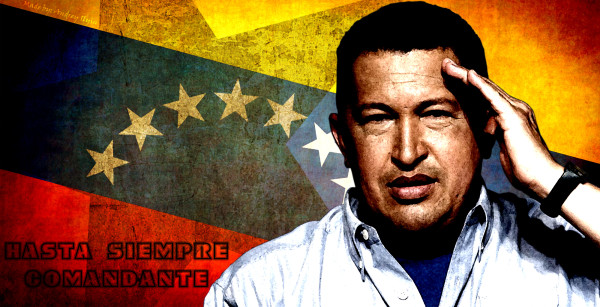The intemperate media killed Hugo Chavez several times and now that it has happened they are taking the opportunity to butcher and eviscerate him to pay him back. To pay him back for having been concerned for the more than 20 million Venezuelans living below the poverty line at the start of his term in office.
He didn’t manage to eliminate poverty as he was able to do with illiteracy. Nor was he able to transform the oil exportation matrix and industrialise the country. But the process has been launched. Five million Venezuelans could go and see a doctor thanks to Chavez and the entire population could discover what an absolutely transparent, without fraud election process looks like.
We could spend hours and hours discussing everything else, but his legacy is this new step that the Bolivarian Republic took and the Latin American construction that has appeared despite foreign interference. The great challenge will be to maintain and prolong this process of emancipation without the powerful and overpowering figure of the commandant.
Nestor Kirchner has already gone; a crucial ally in burying the imperialist ambitions of the Free Trade Area of the Americas (ALCA in its Spanish acronym) and in avoiding a war with Colombia in one of the most serious crises with the neighbouring country. Lula is fighting against cancer, but the continent is enjoying good health and has the foundations to become a strong centre in this planetarised century where a multipolar culture vigorously looms.
Modesto Guerrero, the unofficial biographe of Hugo Rafael Chavez Frias, recounts that the President did not take his presidential salary. With this money he endowed new grants to students with the best marks. And so that his daughter could buy an apartment, the President took a loan that he repaid with his military retirement pension.
He was a singular man who broke with stiff protocol and whose energy and optimism were contagious. Maybe he sang more than his talent allowed, a frustrated painter and baseball player, throughout his entire life no one was indifferent to him. They describe his fight against cancer as a fight between good and evil, for some Chavez represented the good and cancer the evil, for others, it was the reverse.
For the thousands and thousands of Venezuelans who accompanied his coffin and the millions of Venezuelans who will say goodbye in these three days of lying in state will be testimony to the love that his people felt for this man who won 13 out of 14 elections in which he stood. Eduardo Galeano, who was the international supplier in some of these votes, asked a humble Venezuelan, “Why are you voting for Chavez?”
“Because I don’t want to be invisible ever again,” he replied.






